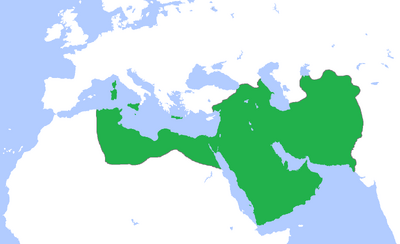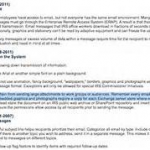
The history and map tells a story and is a useful tool for a prediction of the future of Iraq, Iran, the Middle East and even Europe. It should be noted that many other factions are joining in solidarity with ISIS that includes some in the Taliban, causing a potential vacuum in Afghanistan once the United States completes the troop withdraw. North Africa is especially vulnerable but what is worse is Europe with the particular being Spain.
Abbasid Empire history has been forgotten yet is appears it is part in parcel to al Baghdadi’s quest.
The history of the Abbasid Empire must be recognized along with all the other historical events that includes Sykes-Picot.
The Abbasid caliphate or, more simply, the Abbasids (Arabic: العبّاسيّون / ISO 233: al-‘abbāsīyūn), was the third of the Islamic caliphates. It was ruled by the Abbasid dynasty of caliphs, who built their capital in Baghdad after overthrowing the Umayyad caliphs from all but the Al Andalus region.
The Abbasid caliphate was founded by the descendants of the Islamic prophet Muhammad‘s youngest uncle, Abbas ibn Abd al-Muttalib, in Harran in 750 CE and shifted its capital in 762 to Baghdad. It flourished for two centuries, but slowly went into decline with the rise to power of the Turkish army it had created, the Mamluks. Within 150 years of gaining control of Persia, the caliphs were forced to cede power to local dynastic emirs who only nominally acknowledged their authority. The caliphate also lost the Western provinces of Al Andalus, Maghreb and Ifriqiya to an Umayyad prince, the Aghlabids and the Fatimids, respectively.
George Bush was quite right, this is going to be a very long slog of war one, that could in fact lead to a global conflict and must be addressed now such that there is time for some control and while it is manageable. The terrifying component in this is the feeble position of NATO and especially the leadership of the United States to get out in front of this looming doom.
The End of Al Qaeda — and the Emergence of a More Dangerous Jihad?
By: Dr. Dave Sloggett
The announcement of the creation of a new Caliphate is a tipping point for the fortunes of Al Qaeda. But it’s been clear for some time that Dr. Ayman Al Zawahiri, the de facto leader of Al Qaeda since Osama Bin Laden’s death at the hands of US Special Forces, has cut a lonely and distant figure.
The much-maligned but highly effective program of drone strikes by the United States against the jihdist group in the Federally Administered Tribal Areas of Pakistan has had a material impact on Zawahiri’s ability to affect control over his increasingly geographically diverse organization. His failure to lead a major attack on the west replicating the impact of 9/11 has also undermined his position.
Now, recent events such as the rapid emergence of the Islamic State of Iraq and the Levant (ISIL) have crucially weakened his position.
The question is if Zawahiri is isolated does that mean Al Qaeda has reached a tipping point from which it cannot recover? Does it place even greater pressure on Al Qaeda to stage a spectacular attack to regain its lost power base? The current increase in alert levels at airports may be an indicator that intelligence agencies have serious indicators of some attempt by Al Qaeda to regain some semblance of authority over the international Salafist movement.
Whereas Osama Bin Laden — as a former graduate of business studies — would have hoped for a smooth transition of the leadership of Al Qaeda and its network of franchises around the world, the exact opposite has taken place. As a student of business studies, Bin Laden would have been well aware of the contemporary line of thinking encapsulated in the concept of “power to the edge” – a view that organizations should move away from being centralized to empowering their operational edges.
It was the concept Bin Laden followed in creating the network of international franchises that span the globe. Business schools may teach the benefits of such an approach in a globalized world, but what impact does such thinking have on an international terrorist organization?
As Zawahiri has gradually lost control of Al Qaeda’s various franchises, their independently minded leaders have sought to develop their own overall strategic direction. As a result, Zawahiri’s loss of control for decision making has devolved. Almost unintentionally Al Qaeda had already ceded power from the center to the “edges” of the organization.
When this happens in an international terrorist organization, it is possible for the outcome to not follow conventional business thinking. And that is what happened to create the conditions that’s given the rise to the Islamic State (IS), or ISIL as it was recently known.
Declaration of a Caliphate
The declaration of the creation of a new Caliphate on the first day of Ramadan by ISIL leader Abu Bakr Al Baghdadi and the news he’d been appointed its new Caliph was totally unexpected. It was a bold move that ultimately may see ISIL take control of the international Salafist movement. The timing reflects a man who has given some deep thought on the theological impact of the decision.
The pronouncement to call the new Caliphate the Islamic State is very significant, however. It implies a single body rather than a network of loosely tied affiliates that so far have had little material impact on the global stage. The declaration of the new Caliphate makes it easier for other groups across the Muslim world to say they will join the new social movement. It will also make it much easier for future attacks to be linked to Al Baghdadi’s organization.
The impact on the worldwide Salafist movement that Al Qaeda had purported to lead has been dramatic. Already, one group in Egypt announced on July 3 that it is changing its name from Ansar Bayt Al Maqdis (Supporters of Jerusalem) to the Islamic State.
Other groups have also been quick to respond to the news of the formation of a new Caliphate. In Morocco, a number of individual Internet users were also quick to welcome the declaration from Baghdadi. In Indonesia, Internet users quickly followed suite and exchanged congratulations. One described it as an historic event. One of Al Qaeda’s highest profile franchises, Al Qaeda in the Land of the Islamic Maghreb, quickly issued a video recording offering its “support” to the leadership of IS. It also called upon Zawahiri to explain his stance on the creation of the new Caliphate.
Let’s wait and see
Al Qaeda franchises operating in West Africa, including El Mourabitoune in Mali and Ansar Al Shari’ah in Tunisia and Libya have given a more sanguine response to the news. They are reported to be planning a meeting to discuss the latest developments somewhere in south-eastern or western Libya.
Other groups have provided more definitive responses. In Syria, some of the rebel groups involved in fighting President Bashar Al Assad’s regime have rejected the announcement. Nine groups, backed by a number of high profile religious scholars, dismissed the statement issued by IS. In a statement, they challenged whether the conditions for creating a Caliphate had been met as defined in religious texts. “The terms of the Caliphate have not been realized at present, especially in terms of state organizations,” the statement read. It ended with a call for all Muslims to avoid siding with IS.
In the Caucasus, the reaction of Jihadist groups was similarly muted. Their remarks focused on the need to await the outcome of considerations by Islamic Scholars over the news. Only then would the situation become clear. Given the inability of many Islamic scholars to agree on many contemporary issues, such as the theological validity of suicide bombing, the period of time some Jihadist groups have to wait for a clear sense of direction from scholars may be a long one.
The rise of ISIL and the formation of the Caliphate sent shock waves through social media sites frequented by Muslims across the world. If groups are quickly turning to IS, what then is the future of Al Qaeda? Is this a tipping point at which it becomes increasingly irrelevant?
Analysis
The degree to which Zawahiri has become detached from the day-to-day operations of the Al Qaeda network of franchises became clear when he tried to intervene in the move of Al Qaeda in Iraq (AQI) into Syria. This was primarily signaled by a re-branding of the AQI name to the interim name of the Islamic State of Iraq and the Levant (ISIL). Even this relatively short-lived name signaled the ambitions of the leadership of ISIL — specifically Baghdadi.
Because AQI argued its support to the Al Nusra Front in their struggle against the Assad regime, the members assumed that they could subsume them into the wider ISIL. To Baghdadi, a reclusive and shadowy figure, it was obvious he should be in command of the entire Salafist effort to bring down the Assad regime. After all, it was the exploits of ISIL which had proven emblematic to impressionable young western Europeans travelling to Syria to join the fight.
It was clear at this point that Baghdadi was enacting an audacious plan to take over all Al Qaeda activities in Iraq and Syria. The move did not please Zawahiri, and he attempted to use his failing authority to order ISIL to re-focus their efforts on Iraq and leave Syria to the Al Nusra front. When that initial approach was rejected out of hand by the leadership of ISIL, Zawahiri’s attempts to admonish and berate the ISIL leadership and give his support to what he declared to be the legitimate franchise in Syria backfired spectacularly.
Having fallen out with what is often called the Al Qaeda “core,” Baghdadi saw an opportunity. He embarked upon a far reaching attempt to widen the sphere of influence crossing the border from Syria into Iraq. Using established social networks along the Euphrates River Valley, ISIL was able to move quickly to join up the towns and cities from Fallujah to the Syrian Border.
For many Iraqis, it seemed that it was only a matter of time before ISIL moved on Baghdad. Given its religious and historical significance, any foothold in the Iraqi capital would allow Baghdadi to claim that he — no doubt with the support of Allah — had re-created the conditions for the creation of a new Caliphate, replacing the Abbasid Dynasty that had survived from 750-1258 when Baghdad was sacked by the Mongols. This was a bold move by Baghdadi that signaled his intent to underpin the creation of IS and create greater opportunities for traction with those that formerly supported Al Qaeda.
For the moment, Baghdadi must be pleased with the reaction his announcement has had across social media domains. He made a move to take control of the international Salafist movement at a point when its previous leadership had been at its weakest position for many years.
In reacting to the moves made by Baghdadi, Zawahiri is reported on Al Qaeda’s own Twitter account to have laughed. Clearly, Zawahiri is not enamored by the idea. If, however, IS continues to gain ground, Zawahiri may end up laughing on the other side of his face as the global movement he has led since Bin Laden’s killing disintegrates.
For the West, this is a stark turn of events. Any estimates of the number of Europeans travelling to Syria and Iraq to join the fight are way off. In the Netherlands, a senior political leader admitted it only takes 48 hours for a person to get into Syria from the Netherlands. Other political leaders are saying much the same — that the numbers of Westerners estimated to have traveled to fight in the new Caliphate is much too low.
Dr. Dave Sloggett has more than 40 years’ experience analyzing international security issues. His most recent books are, Focus on the Taliban, and, Drone Warfare. Watch for his article, “Kenyan Fault Lines: An Unstable Divide Ideal for Terrorist Exploitation,” in the upcoming issue of Homeland Security Today.






